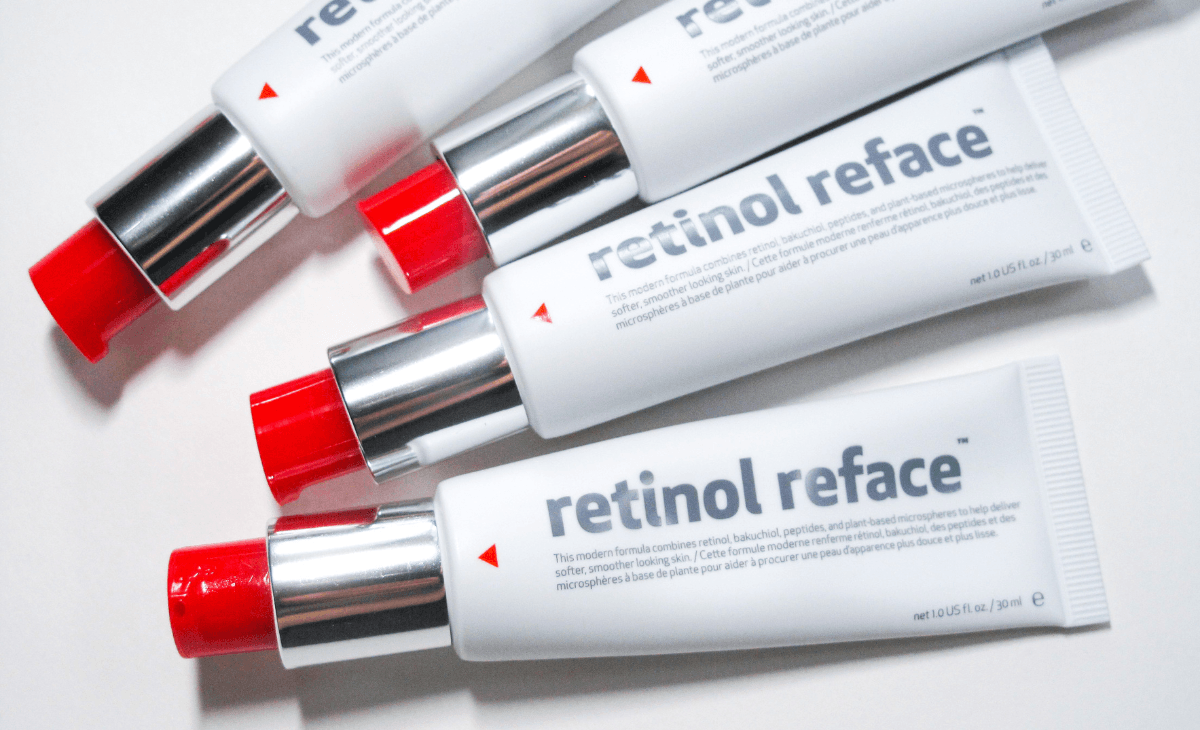Get to know this all-star anti-aging ingredient

Retinol is an ingredient that you’ve probably came across, but might not be sure what exactly it does. In order to eliminate the confusion on how this ingredient should be used and what it can do for your skin, we’re going to demystify this gold standard in skincare. Derived from vitamin A, retinol is an antioxidant and skin restoring agent. Retinoids can be a miracle worker for those dealing with acne, anti-aging or hyperpigmentation.
Retinol first came to market decades ago as an effective acne-treatment, but has since evolved as the anti-aging super ingredient that we know it as today. It is considered one of the most effective anti-aging ingredients among beauty experts and dermatologists alike, because the results are all backed by science. Retinol is undeniably proven through numerous studies, and scientifically confirmed to correct existing skin damage and prevent further signs of aging. Whether you’re looking to rebuild collagen, rid your skin of acne scars, or treat the appearance of fine lines and wrinkles, this ingredient does it all. That’s why no matter what your age, retinol is that essential ingredient that you need to add to your beauty regime.
Why is retinol reface so powerful?

Well, simply speaking, it’s an anti-aging night time serum that addresses anti-aging concerns like wrinkles, uneven skin tones and dryness. Retinol reface uses three highly advanced retinol ingredients that work together to, polish, protect and preserve your ageless skin. Here’s a simplified list of exactly what retinol reface does for your skin:
- Minimizes the appearance of fine lines and wrinkles
- Reduces acne scars by speeding up the pealing process and accelerating cellular turnover
- Boosts production of collagen to fix roughness and uneven skin
- Shrinks the size of large pores
- Reduces visible dark spots
So where do all of these benefits come from?
Retinol reface contains three forms of “retinol like” ingredients that work magic on your complexion. Each of these three potent ingredients work together to give you innovative results that come quick and painless
- Retinol: A derivative of vitamin A that occurs naturally in the skin. This ingredient alone tackles all of the above benefits, but only after the retinol penetrates into your skin and converts into retinoic acid. Retinoic acid is the state at which this ingredient is activated and begins to release its miraculous capabilities. This is why we call it a time-release retinol; as it may take several weeks to fully convert in to retinoic acid, thus giving your skin long lasting results.
- Hydroxypinacolone Retinoate (HPR): Why sit back and wait for your retinol to convert into retinoic acid when HPR does it instantly. HPR is a fast acting next generation retinol proven to do everything your basic retinol does, but with increased strength and efficiency. Another extremely necessary benefit of HPR is that it provides all these advanced improvements, while also providing less risk of skin irritation. It basically works as a non-irritating form of Retin-A (a prescription only ingredient).
- Palmitoyl Oligopeptide & Palmitoyl Tetrapeptide-7: We know what you’re thinking, “I don’t see retinol in either of these ingredients.” Although you can’t see it, we assure you, it’s there. That’s why we like to call them retino-like peptides. They look like peptides but provide the same anti-aging benefits as your common retinol. What’s great about these retino-like peptides is that, once again, there is no scientific evidence that suggests they cause any sort of skin irritation.
What other ingredients can you find hidden in the mix?
- 4-T-Butylcyclohexanol: If you were worried about retinol induced skin irritation, this ingredient will calm your nerves. 4-T-Butylcyclohexanol (sorry we don’t have an abbreviated form) is used to offset skin irritation and reduce skin sensitivity. Benefits include; anti-stinging, ant-burning, redness reduction, and skin soothing. It really gives that pleasant spa like feel that we all desperately need after a hectic day.
- Glycine Soja (Soybean) Oil: Derived from soybean plant seeds, this ingredient functions as both an antioxidant (slowing down skin deterioration) and as an emollient (softening and smoothing the skin).
Are there any side-effects? Cautions?
Does this all sound too good to be true? Well, it’s not. Of course there have always been some pesky retinol side effects crawling around the web, but there’s really no reason to fear; we’re here to respond to a few of those concerns.
- Does retinol make my skin more susceptible to sun damage?
- This ones merely a myth. There’s really no scientific evidence that suggests retinol increases your sensitivity to the sun. We do still suggest applying a broad-spectrum sunscreen the following morning, because after all, if you’re using retinol to repair damaged skin, you also need to be protecting it from any further sun damage.
- Does retinol cause skin irritation (redness, stinging, peeling, or itching)?
- This one is true in some cases, but don’t worry, we’ve got your back girl. This is why we pumped in a number of skin-soothers like 4-T-Butylcyclohexanol, soybean oil, and glycerin. But for some people, that still isn’t enough. If you’re someone with really sensitive skin, here’s an easy solution, try buffering. Mix your retinol into your moisturizer to slightly dilute it and reduce irritation. Once you’ve become a bit more de-sensitized to the product, go ahead and apply it on its own.
How should I apply it?

After cleansing, apply a pea size amount to the face and neck in the evening. Please do not rub. You should gently dab the serum on to the skin. This will not only ensure the ingredients penetrate deep into your pores, but it also helps avoid any irritation. Start using it every other night, working up to daily use. If you have super delicate skin, just mix it into your moisturizer. Lastly, don’t forget to apply sunscreen the next morning, so you don’t get in the way of your retinol’s progress.

